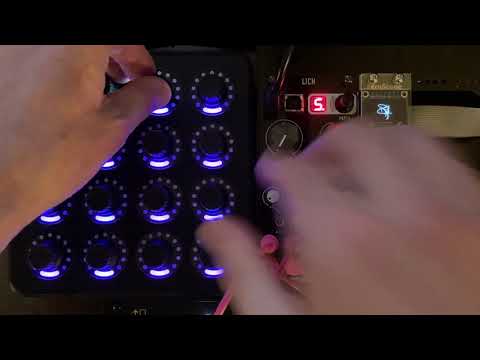I finally finished my first patch for Lich, which is a stereo oscillator that oscillates over a 3D curve, projects it 2D, and uses the X-Y coordinates as left and right outputs. The curve rotates in 3D space, which animates the stereo field in a really nice way. I call it a Knoscillator because the curves are based on parametric equations for so-called Knots. I’ve got a demo on youtube that runs through all the parameters, that will probably make more sense than these words.
You can install it from the patch library here: https://www.rebeltech.org/patch-library/patch/_Lich_Knoscillator
Would love to hear what folks think!


